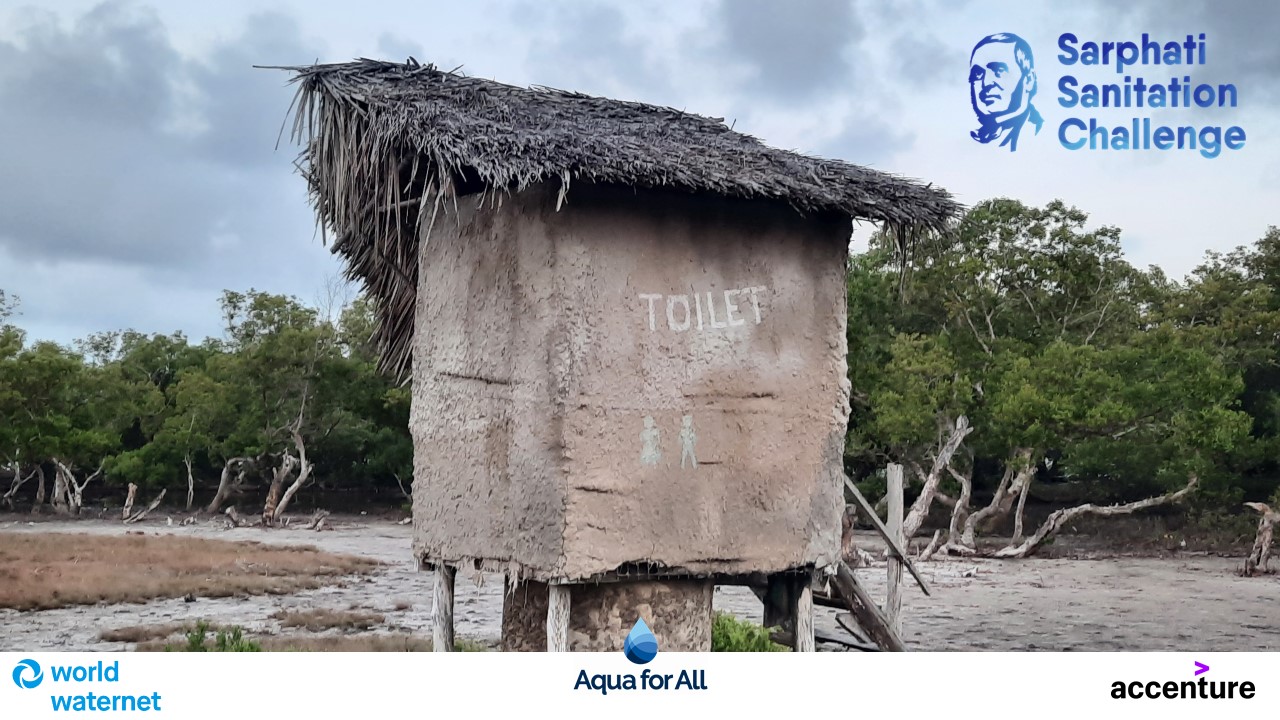Last week, on the 26th of August, the Sarphati Sanitation Challenge Jury met online to select the five finalists who will continue in the next stage of the Challenge. Over the past months, the cohort of ten semi-finalists have been participating in training workshops from Accenture, which culminated at World Water Week where each team presented a 1-minute pitch video.
The semi-finalists provided additional information on their solutions, business models, and pathway to growth for the Jury to evaluate. The Jury then assessed how well each solution fit the SSC criteria of improving health, increasing access to sanitation, innovation, scalability, readiness, and sustainability.
They did an excellent job, it was very hard to choose from the ten impressive solutions but they managed, and we are excited to present the lucky five:
- Aerosan (Nepal)
Aerosan is a social enterprise offering a design build-operate public toilet management solution through a network of pay-per-use, gender and disabled inclusive hygienic and modern facilities (known as HUBs) with an integrated waste-to-value solution and an evidence-base cleanliness protocol. The HUB model is built on key partnerships with local governments and with the Sanitation Workers Co-op, which is made up of 500 Dalit women living in informal settlements.
- AKYAS (Jordan)
AKYAS innovated a new faecal sludge management value chain for non-sewered sanitation systems. Their solution aims to provide safe sanitation at low cost, recover resources from human waste in a hygienic, user-friendly approach, and prevent cross-contamination between human waste and the surrounding environment. AKYAS products generate additional financial flow at the back end of the service chain, by tapping into resource recovery from waste-derived products, such as organic fertiliser.
- change:WATER Labs (US)
change:WATER Labs created iThrone, a waste-shrinking, drop-in toilet that flushes away human waste by evaporating it, extending safe, clean toilet access to communities with no plumbing. This approach tackles a key challenge of distributed sanitation, cutting down on collections by quickly shrinking waste inside the toilet itself. It does this in a way that is low-cost and good for the planet, converting waste into molecular water and power.
- Mosan (Switzerland)
Mosan provides an ecological, inclusive, market-based sanitation system including a mobile urine-diverting dry-toilet. It is a stand-alone, easily deployable, replicable circular sanitation system, which is low tech, affordable and locally producible. Mosan’s strategy is to scale via social franchising, seeking to enable safe, feasible and accessible community-led sanitation services, thus maximizing its social, environmental and economic impact.
- WASHKING (Ghana)
WASHKing makes, supplies and installs environmentally safe, accessible and affordable biodigester toilets for low-income and underserved urban households and institutions. The toilets aim to end open defecation and improve poor sanitation challenges in low-income urban communities in Ghana. The sustainable last-mile toilet distribution service uses pay-as-you-go technology, combining smart door-lock, adequate toilet facility and digital payment systems, to provide sanitation for low-income customers.
The five finalists will continue in the next stage of selections where they will get to present their solution ‘live’ to the Jury.
The final winner will be announced on 5 November during the Closing Ceremony of the Amsterdam International Water Week 2021.
We would like to thank the other five semi-finalists for their hard work and dedication, and wish them every success in the important work they do.
We will keep you posted on our social media channels:
LinkedIn: @sarphati-sanitation-challenge
Twitter: @SarphatiChall
Facebook: @SarphatiChallenge
And we will share the World Water Week video with our Sarphati session later this week.
